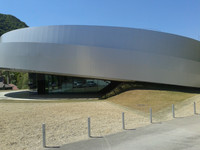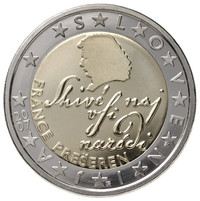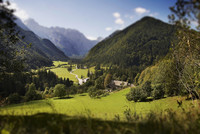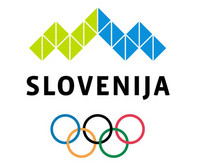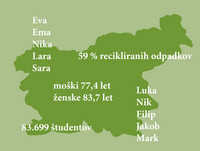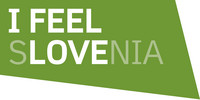Before 25 years we have realized a century-old dream of our ancestors to live in our own country. But without culture that reflected through our, Slovenian language, we would not rejoice in our independence and sovereignty a quarter of a century ago. Culture is the face of our nation, because it gives us identity. In the history culture has had a decisive role in the formation of the Slovenian nation and Slovenian state. Culture and within it everything related to the Slovenian nation and Slovenian language as foundation of our being and creativity, has always been the unifying force of the Slovenian nation. It reflected in the patriotic feelings which prompted the events of 25 years ago, which led to our independence and our own country. more >
On 8 October 1991, Slovenia introduced its own currency, namely the tolar, and set out on a path of monetary independence. The tolar was one of the most important attributes of the Slovenian State. Monetary independence was a precondition in gaining the young country's international recognition. On 1 January 2007, the tolar, our trustworthy and stable currency, was replaced by the euro. Slovenia was the first of the ten countries to have joined the EU in 2004 to adopt the euro. more >
Slovenia presents itself as a genuine, authentic, and traditional, but also contemporary, innovative, and, due to its size, manageable tourist destination. Green. Active. Healthy. Slovenia is a country to be discovered and experienced, highlighting most positive features such as a homely and relaxed atmosphere, unspoilt nature and rich cultural heritage and offering opportunities for active and relaxing holidays. The advantage of Slovenia is in its boutique attractions, small size and diversity. more >
Today, the Olympic Committee of Slovenia – Association of Sports Federations (OCS-ASF) is the umbrella sports organisation of the civil society sphere, joining as its members sports societies in Slovenia and neighbouring countries through national federations for individual sporting disciplines (Olympic, recognised by IOC and non-Olympic) and municipal sports federations (15 regional representatives). more >
At the mention of statistics, we tend to think of nothing but dull numbers that can only be understood by statisticians and mean nothing to ordinary people, but that is certainly not true. It is especially untrue when data is compared over the span of several years – even more so if we look at a 25-year period. Often such comparisons reveal the true picture, a certain trend of change, while sometimes they prompt us to want to change or improve something. more >
Countries around the world are recognised by their typical features. When we think of Germany, we think of quality, attention to detail and the flawless precision of their products. We associate Italy with fashion, France with anything related to the enjoyment of life, Switzerland with watches, cheese, and chocolate, etc. Nowadays, the competition between countries is severe and only a handful of them are successful in multiple areas. In practice, we see that even small countries, such as Slovenia, are also competitors in the global arena, as they appeal to the emotions of their visitors. When creating this emotional appeal and the reputation of a country, the importance of its brand, presenting it to the outside world, cannot be denied. more >

